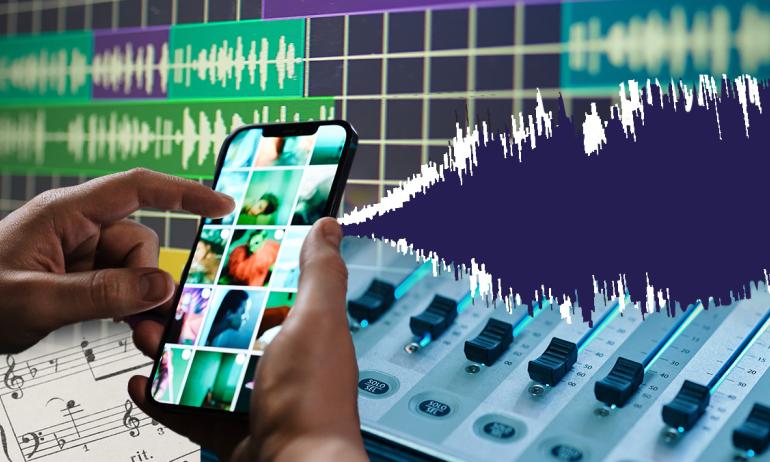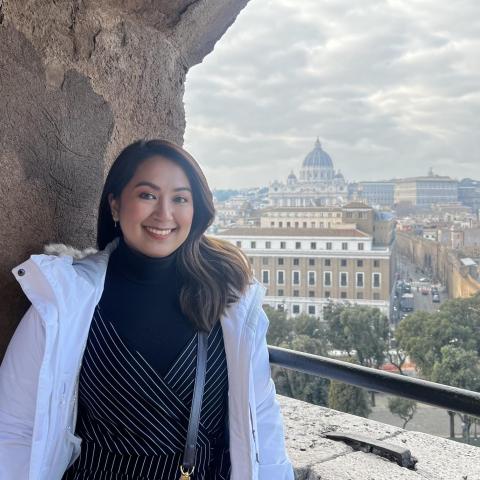Celebrating National Poetry Month with Berklee Student Kaiya Nyasha

Kayia Nyasha
Image courtesy of the artist
Berklee Now's Keyed In series features Berklee artists and experts sounding off on the latest news and trends from the music world and beyond.
Twenty-one-year-old alternative R&B singer, songwriter, producer, and poet Kaiya Ballard, who goes by the stage name of Kaiya Nyasha, uses her music as a call to action for youth to empower themselves to rewrite their narratives. Her music is a celebration of culture, womanhood, and hope. The Miami native, who began writing poems and songs when she was 8 years old, strikes a balance between lush harmonies and themes of self-love by fusing socially conscious messages with upbeat, lighthearted grooves and catchy hooks. In addition to performing, Nyasha is also a mentor and instructor for the nonprofit organization Girls Make Beats. She first joined as a student in the summer of 2017 and currently teaches production to young girls between the ages of 6 and 17. Currently in her third year at Berklee, she will graduate in 2023.
In recognition of National Poetry Month, Berklee's Media Relations team talked to Nyasha about her musical heroes and the inspiration behind her spoken-word tribute to Black women. The interview has been edited for length.
Who were your musical inspirations growing up, and who inspires you today?
Lauryn Hill and J. Cole were two of my greatest musical inspirations growing up. I wasn’t necessarily raised in a musical household, so most of my childhood I consumed commercial music through the car radio. I feel like Lauryn and Cole were the first artists I truly discovered and gravitated to on my own, and I find so much value in the content of their lyrics. I remember stumbling on the “Doo Wop (That Thing)” music video on YouTube in awe. Lauryn was the first woman emcee and vocalist I had ever seen. She helped me to see there is space for me to hold both identities. I don’t know if this is a cop-out answer, but today I’m inspired by my family and culture, the new-age sound of genre blending, and my own experiences being confronted with the themes of early adulthood.
What made you want to come to Berklee?
At first, the task of finding a reputable contemporary music institution felt daunting, especially coming from a classically trained vocal background. I remember looking for a school that would facilitate my growth as a creative entrepreneur interested in pursuing a career as a recording artist and executive. I found Berklee while researching contemporary music institutions, and I found that it was one of the few institutions that met and exceeded those needs. I was hooked after binge-watching Berklee performances on YouTube—I thought, “This place is a dream!”
You're majoring in music business/management. Why did you decide on this as a major, and how do you hope to apply it after you graduate?
I’ve always had an entrepreneurial nature, from selling friendship bracelets and no-sew bows in the fourth grade to entering the freelance world as a videographer/editor and writer. Through my internship as a social and digital strategist, I discovered I not only had a natural knack for content creation but it could be turned into a legitimate career path as a media consultant. Post-graduation, I will likely continue to explore the avenue of consultation but I ultimately plan to use these skills I’m refining in marketing to amplify my artistry and find a team that matches my brand identity.
In your Two Track video for March, you performed an original spoken-word piece titled "Black Women." What inspired you to write this piece?
Thank you for watching. I love this question! My senior year of high school, I was on the train commuting home from downtown Miami when a woman sitting two seats behind me started receiving negative attention on the train. She spoke on the phone about how she was late to court but thankfully wasn’t penalized because the trial was running behind. She then shared how happy she was that she would be getting her due child support and would use some of the funds to pay for her children to go to Disney World. I remember her saying she herself wouldn’t be able to go but that her children would vacation with the rest of their family: “I’m just happy they won’t be missing out.” Passengers on the train began to contort their faces with disdain, some getting up to move only four feet over to the opposite side of the aisle. It was ridiculous! Right before my eyes I saw a woman be typecast into the loud, ratchet Black woman trope for simply existing. Instead, I chose to see her for who she was: a single mother trying to do the best by her children whom she loves. I saw my mother in her and every Black woman who has been denied their right to exist freely. She became my muse, and once we reached the last stop 30 minutes later, “Black Women” was born.
In the summer of 2021, you secured an internship as the social and digital strategist for the New York–based Black-owned independent label Heads Music, serving as Wyclef Jean’s media manager. Were there any lessons you learned about the music industry from him, and what did you take away from that experience?
Wyclef and I connected as creatives first and foremost, and he imparted a lot of wisdom on me to be resourceful with my art—my voice could be the melodic line for a string quartet or a sample of a car door could be a kick. We also bonded over the poetry in battle rap, and to break down flows with one of the greatest rappers definitely opened my ears to the limitless creativity of songwriting. If there’s anything else I took away from the experience, it’s that there is always someone willing to guide you along any part of your journey if you’re courageous enough to ask. I mean, I landed the gig from an Instagram DM! I also learned, under the mentorship of Madeline Nelson, not to shrink myself and to own my spot in the room, because I gained access to the room for a reason.
Watch Kaiya Nyasha on Berklee's Two Track video series:



